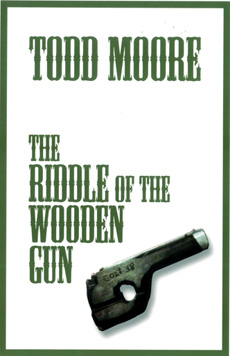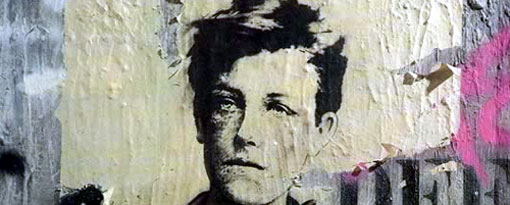
Kenny G. wasn’t looking for a blackjack in the face. He was the kind of guy who wanted to talk shit to you before he kicked your ass. He wanted to scare you by telling you what he was going to do to you. High and low. Maybe if you just took it, he’d give you a fat lip and let you go with a warning. Or, maybe he’d just beat the living hell out of you for the fun of it just to watch you yell. Then he’d go from there to giving you a shove or punching you hard in the chest or guts. It was his idea of fight foreplay.
So, the blackjack surprised him. Surprised and hurt him both at the same time. I’d found it down in the Illinois Central railyards between two freight cars. It was stamped Illinois Central Railroad on one side and had some initials on the other. I figure some railroad cop had accidentally dropped it and suddenly it was my lucky day. If you can call a tool made specifically for crunching bones luck.

The best advice I ever got from my old man was when you hit a guy, give it to him straight in the face and make it hard. As hard as you ever hit anything because when you land a punch in the face just right the pain radiates everywhere. And, it really fucks up the eyes. So, that’s where I hit Kenny G. with that jack. He was still talking when I swung and the sound it made was like a hammer sinking into meat. Kenny G. finished his sentence spitting by out a tooth and a whole lot of blood. And, while he was bent in half, I hit him again. A drunk coming out of The Rainbow Tap I was standing in front of said, you didn’t give him a chance. And, I said, he didn’t deserve one. I had let him become one of my demons until I caught his blood in my hands.
We dream our assassins. We open that psychic door and we invite them right in. Hemingway kept inviting them in until he became them. Isaac Babel played gangster games with them until they morphed into the secret police and got him. And, Benya Krik was absolutely no help at all. Mayakovsky performed with the demon assassins until one of them handed him a pistol and said, you know what to do. Lorca thought that if he conjured the duende assassins they would love him so much they’d leave him alone. Instead, they loved him so much they shot him dead.
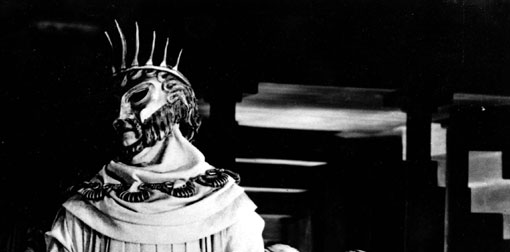
The thing is you can’t write a decent line of poetry until you invite the demons in. The demons who are also the assassins. Lorca knew that and included the threat of death in the theory of the duende. It doesn’t matter if you call that phantom death, demons, or assassins. They all amount to the same thing. And, if the poems you write aren’t seasoned with the blood that the demon assassins provide, they won’t be worth the paper they’re written on. And, by the way, the blood is usually yours.
Lorca had already invented his assassins long before they came to arrest him. I’m absolutely sure of that. I can see him having a midnight snack with one on a candle lit veranda while he’s writing the lines, If I die, please/ Leave the window open (Farewell). I think Lorca knew his assassins intimately. Which ones loved red roses because they resembled wounds, which ones loved the black holes their pistols made when they shot them into the blinding light of high noon.
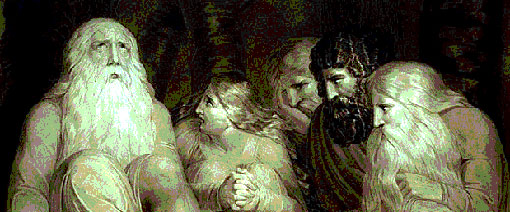
In certain ways we all know our demons intimately. Their dreams are our nightmares. And, in a secret way we know those demons will become our assassins. Especially if we are poets. Undoubtedly, if we are poets. Maybe we are even hoping for it. A poet who believes he is also an outlaw might keep a loaded pistol in his desk drawer and tell himself it’s for the demons. It won’t do any good against the demons but it’s comforting to know that a loaded pistol is just waiting to be held. William S. Burroughs knew that. He had lots of pistols and the demons loved him dearly. And, he loved them beyond human love itself.
You can’t be an outlaw poet and not love weapons. It’s part of your weakness, it’s part of your nature, it’s just part of what you do. You may not rob banks, you may not shoot people, but there is some secret part of your being that is attracted to weapons and head over heels in love with danger. You may not own any guns, but that doesn’t stop you from loving them. Lorca may not necessarily have been in love with weapons but he was attracted to violence, he was attracted to danger and that was the door he let the demons pour through.

A powerful poem is as visceral as a gunshot wound. When it’s new it just smolders in the air all around the poet who wrote it. Smolders and burns. Later that poem wound congeals and becomes a kind of molten thing. It still burns internally but not like that first few minutes after it was written. A powerful poem is visceral and burns like a gunshot wound and death can smell the wound’s rot and also himself. And, while some poems are meant to heal, others are meant to annihilate, destroy.
A SEASON IN HELL can destroy you. THE NAKED LUNCH can destroy you. OEDIPUS REX and THE BOOK OF JOB can destroy you. THE BLIND OWL, which is not a poem but reads like a poem, can destroy you. Judge Holden’s sheer strength can crush every bone in your body, destroy you. The rage of Ahab and Dillinger can destroy you. The madness of HOWL can destroy you. Some poems are weapons all by themselves. Some poems are like wolves, they devour us. They eat us alive heart and soul, even down to the bones. Chigurh will destroy you, he knows where you live.
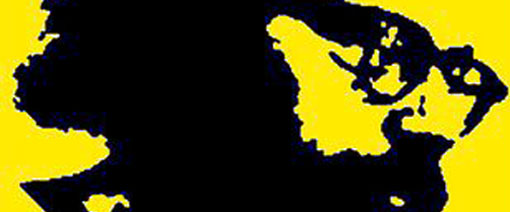
So, why is it we are drawn to the worst ones? Or, if we is not appropriate here, then why am I drawn to the worst ones? The outlaws who live apocalyptically, darkly, created through some kind of special dispensation with nightmare, fever, poison, and frenzy. Even Dillinger dreamed his own assassins. Everything was available to him. Dillinger dreamed his assassins so he could drain off some of their dark energy for the robbing of banks. And, yes, that might be a stretch because Dillinger was definitely not an intellectual. And, he really wasn’t interested in the black arts. But, I believe that he dreamed powerfully, that he dreamed lethally. And, I believe that in his unconscious he was betting against the odds that the demons would get him. He was betting against the odds because somewhere subliminally he believed he was above the odds. He knew against all knowing that he was better than any demon out there. Nietszche believed the same thing and he was betting Zarathustra that he was right. And, Dostoevsky was betting Raskolnikov, Melville was betting Ahab, Shakespeare was betting Hamlet, Goethe was betting Faust, and I am betting Dillinger. The bet is always outlaw and fatal. Archetypal characters are stronger than anyone’s demon assassins. Archetypal characters are the real outlaws of poetry and somehow they will always win.


